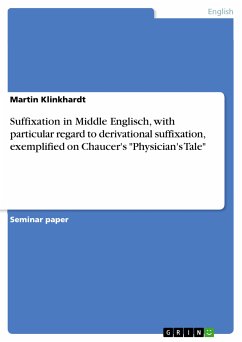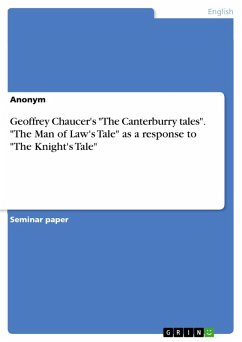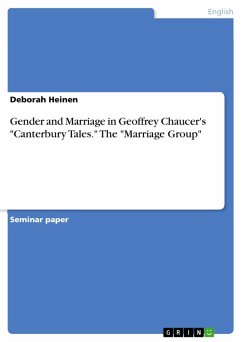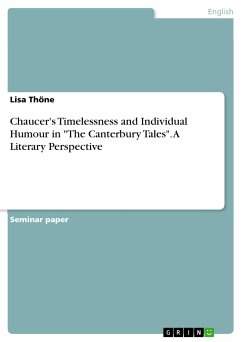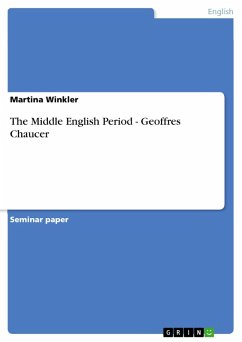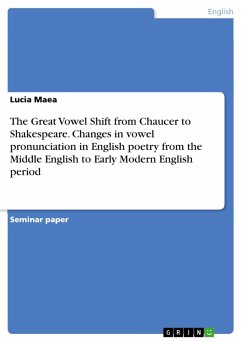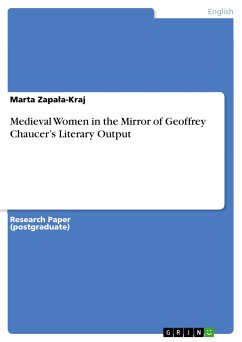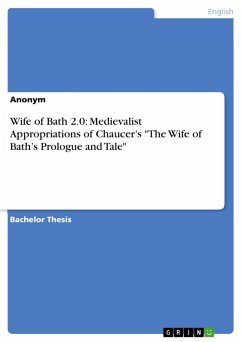Seminar paper from the year 2001 in the subject English Language and Literature Studies - Linguistics, grade: 1 (A), LMU Munich (Institute for English Philology), course: international advanced seminar over "Middle English lexicology, computer-assisted", language: English, abstract: The English language has been very productive at all times in the area of word formation. English has, in fact, the reputation of a very creative language because of the many ways in which new words and expressions can be coined. When we look at a language to examine the processes of word formation, it seems reasonable to begin by scanning a discrete text which stems from a particular period of the language for all phenomena of word formation. Then it becomes necessary to focus on one particular type of formation, to analyse and explain it. In this paper, I discuss Middle English derivational suffixation. The textual basis for this is The Physician's Tale, a part of Geoffrey Chaucer's Canterbury Tales. While I try to include as many types of derivational suffixation as possible, I will omit zero-derivation, which is discussed in another paper by a fellow member of the Hauptseminar. Double suffixation will be looked at, too. I also venture a brief look at the use Computational Linguists make of morphological analysis.
Dieser Download kann aus rechtlichen Gründen nur mit Rechnungsadresse in A, B, BG, CY, CZ, D, DK, EW, E, FIN, F, GR, HR, H, IRL, I, LT, L, LR, M, NL, PL, P, R, S, SLO, SK ausgeliefert werden.

